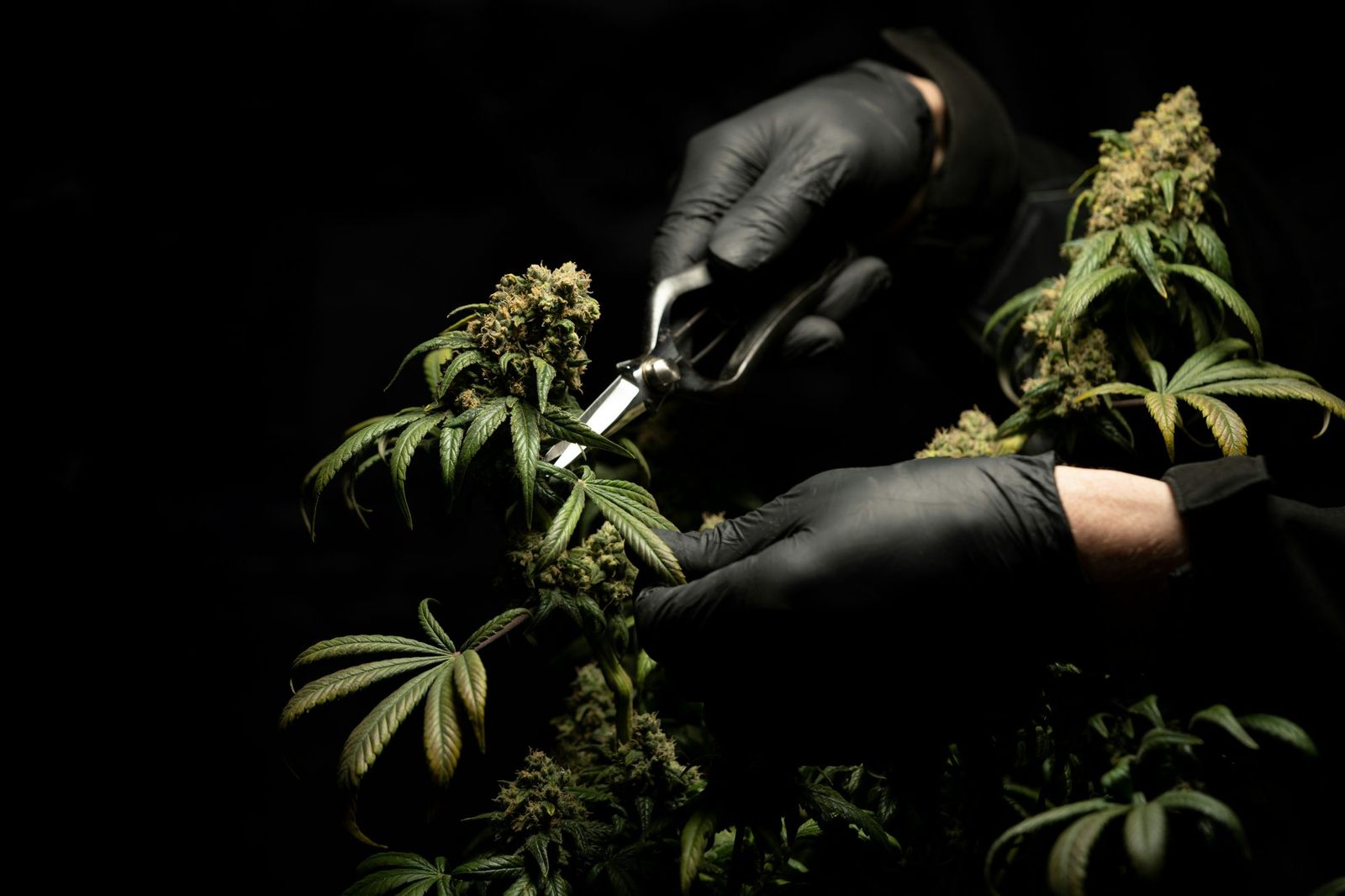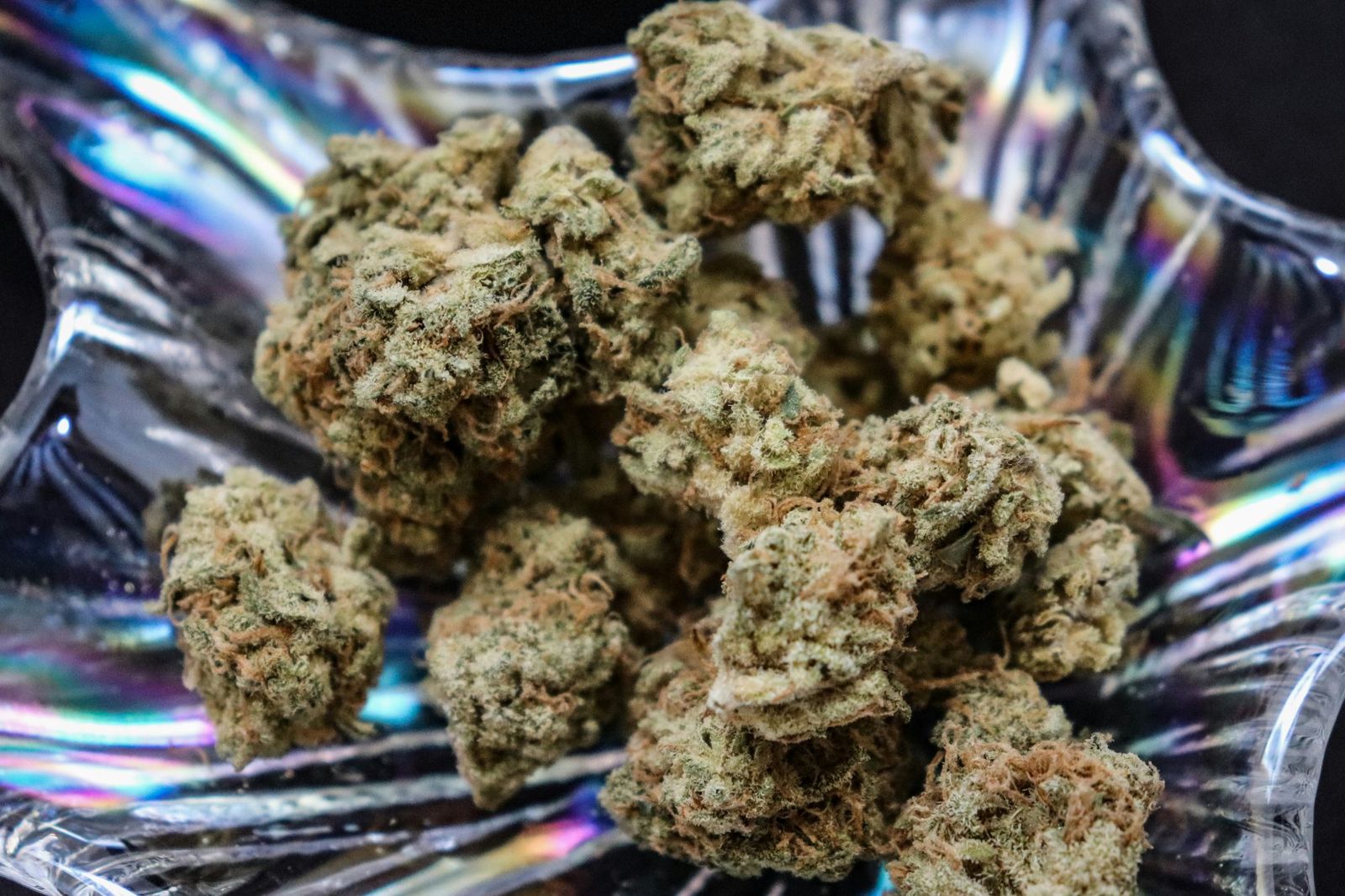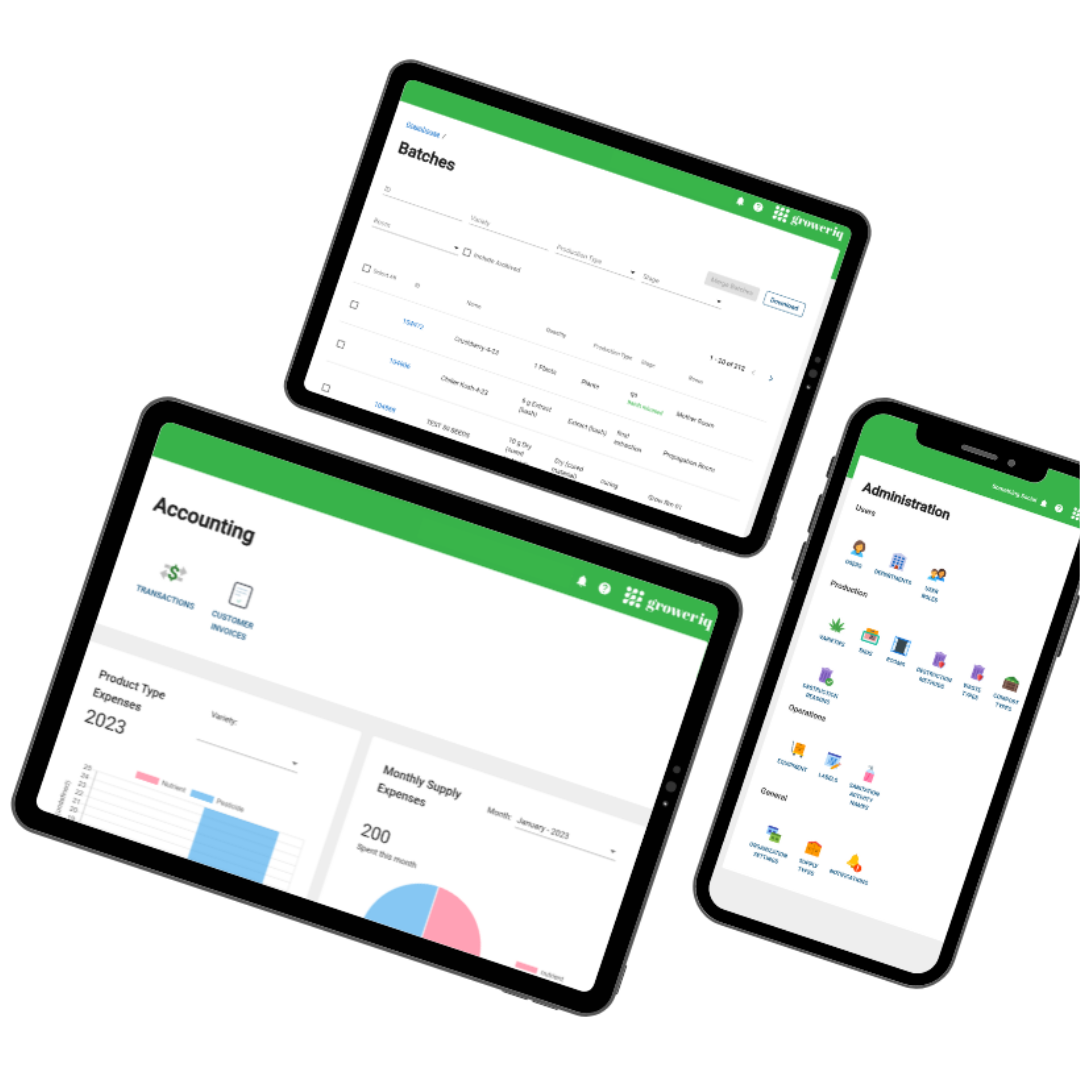Interested in growing hemp for commercial purposes as a registered hemp grower? Find out the steps to ensure compliance with regulations.
Registered hemp growers are a vital part of the hemp industry and can provide you with valuable insights and information that you might not have access to otherwise. Whether you’re interested in growing hemp yourself or just want to learn more about the industry, having a list of registered hemp growers can be a great resource for you. In this blog, we’ll explore the benefits of registered hemp growers and how they can help you in your journey into the world of hemp.
A Look At the U.S Hemp Industry

The U.S. hemp industry has undergone remarkable growth since the legalization of industrial hemp cultivation in the 2018 Farm Bill. This change has opened doors for farmers and businesses, enabling them to explore the diverse applications of hemp, from textiles to food products. The demand for hemp-derived items like CBD oil and industrial materials has surged, reflecting growing awareness of the plant’s benefits and sustainability.
The U.S. hemp industry is driven by innovation, research, and development, involving growers, processors, manufacturers, and retailers to expand its market presence. Each state administers a commercial hemp program under USDA rules, such as Florida’s pilot project law in 2017 and commercialization law in 2019, with licenses issued by the Florida Department of Agriculture and Consumer Services. Increasingly available state and federal programs, like crop insurance and production loans, support farmers, but markets remain unstable as regulations and industry efforts evolve.
Who Is A Registered Hemp Grower?

A registered hemp grower is an individual or entity authorized by regulatory authorities to cultivate hemp plants legally. In many countries, including the United States, hemp cultivation is subject to strict regulations and licensing requirements. To become a registered hemp grower, individuals or organizations must typically apply for and obtain a license or permit from the relevant government agencies.
Compliance for Registered Hemp Growers
Registered hemp growers are required to comply with specific rules and regulations governing hemp cultivation, including requirements related to THC (tetrahydrocannabinol) content, crop testing, cultivation practices, and record-keeping. These regulations are designed to ensure the production of hemp plants that meet legal standards and do not exceed the allowable THC limit, which is typically 0.3% or lower in many jurisdictions.
Opportunities of Official Registration for Hemp Cultivation
By obtaining official registration, hemp growers gain legal authorization to cultivate hemp for various purposes, including the production of hemp-derived products such as CBD (cannabidiol) oil, textiles, building materials, and more. Being a registered hemp grower allows individuals and organizations to participate in the hemp industry and contribute to its growth while adhering to regulatory requirements and ensuring compliance with relevant laws.
Uncomplicate Your Cannabis Production
Cannabis growers face challenges in managing reporting, documentation, and compliance requirements due to the complexity of regulatory frameworks, evolving legal standards, and the need for accurate record-keeping in a highly regulated industry. At GrowerIQ, our software aims to provide cannabis growers with a comprehensive solution for:
- Managing their cultivation operations
- Ensuring compliance
- Optimizing quality
- Enhancing efficiency throughout the seed-to-sale process
- Overall uncomplicating the production process.
We do this with our software which offers a range of functionalities to assist cannabis growers, including:
- Seed-to-Sale Tracking
- Quality Management
- Cultivation Planning
GrowerIQ provides cannabis growers with a comprehensive solution for managing their cultivation operations, ensuring compliance, optimizing quality, and enhancing efficiency throughout the seed-to-sale process.
Who Regulates And Issues Licence To Hemp Growers?

The regulation and issuance of licenses to hemp growers vary by state and federal authorities. Here’s a breakdown of the regulatory bodies and their roles
1. Federal Level
United States Department of Agriculture (USDA): The USDA is responsible for regulating hemp production under the 2018 Farm Bill. It issues licenses to hemp growers through its Agricultural Marketing Service (AMS) and provides guidelines for hemp production, including testing and enforcement requirements.
2. State Level
State Departments of Agriculture: Each state has its own department of agriculture that regulates hemp production within the state. These departments issue licenses to hemp growers and oversee compliance with state regulations. For example, in New Mexico, the New Mexico Department of Agriculture issues licenses for hemp cultivation and processing for growers operating within the state.
3. Tribal Level
Tribal Governments: Some Native American tribes have their own hemp regulations and licensing programs. These programs are typically managed by the tribal government’s agriculture or natural resources department.
In short, hemp growers must comply with both federal and state regulations, which may involve obtaining licenses from the USDA, state departments of agriculture, or tribal governments. If your state or tribe does not have a pending or approved hemp production plan, you may apply for a USDA hemp production license. To obtain a license to produce hemp under the USDA production program, create an account using the Hemp eManagement Platform (HeMP) and use HeMP to submit a USDA Hemp Application. USDA hemp production applications are accepted on a rolling basis throughout the year.
Eligibility Requirements For Becoming A Registered Hemp Grower
To grow any amount or type of industrial hemp in the US, an individual must obtain an Industrial Hemp Grower Registration from the state Department of Agriculture.
- One key aspect of the eligibility criteria is that individuals with a felony controlled substance conviction within 10 years of the application date for an industrial hemp registration are not eligible for registration.
- To obtain an Industrial Hemp Grower Registration, one must complete the Industrial Hemp Grower Registration application and attach an FBI Identity History Summary. It is important to note that the FBI Identity History Summary must not be dated more than 60 days before the application date.
- The application must also include the coordinates for each intended industrial hemp lot. In the case that a business entity will hold the Industrial Hemp Grower Registration, each key participant in the business will be required to submit an FBI Identity History
A “key participant” is defined as a sole proprietor, each partner in a partnership, or each person with executive managerial control in a corporation, including the chief executive officer, the chief operating officer, and the chief financial officer. The Industrial Hemp Grower Registration application fee falls within a range of $150 and $500. Fees associated with obtaining an FBI Identity History Summary are also the responsibility of the applicant.
A Step-By-Step Application Process For A State Hemp Licence

To apply for a hemp license from the Department, you will need to follow a series of steps. Here is what you need to know.
1. Submit a Completed Application
You will need to submit a completed application, along with the required nonrefundable application fee, the FBI Identity History Summary Check for all key participants, and maps/aerial photos identifying growing and storage locations. The application document must be printed and mailed to the Department in hardcopy. Key participants are defined as sole proprietors, partners in partnerships, or persons with executive managerial control in a business or educational entity.
2. Department Review
The Department will review the complete application to ensure it complies with all program requirements.
3. Outcome Notification
Once the Department review is complete, you will be notified of the outcome.
4. Receive State Hemp License
If the application is approved, your State Hemp License will be mailed to you.
5. Authorization to Grow
You are not authorized to grow or cultivate hemp or sell hemp seeds until you have received the applicable New York State Hemp License from the Department.
Required Information
- Each application and renewal application must include the applicant’s name, address, phone number, email address, Federal Employer Identification Number (EIN).
- The location where hemp will be cultivated or stored (include physical address and GPS coordinates).
- A map or aerial photograph with a depiction of the buildings, structures, and improvements on the premises.
- Identification of the source of seeds/propagules that will be used, and an FBI Identity History Summary Check (dated no more than 60 days prior to the date of application).
Disqualifying Factors
Disqualifying factors may include:
- An incorrect or incomplete application.
- Recent (within the past 10 years) drug-related felony convictions of the applicant or key participants.
- Proposing to use a growing or processing location already registered by another grower.
Best Practices For Registered Hemp Growers

Registered hemp growers must comply with state and federal regulations regarding hemp cultivation, including plant growth stages, testing requirements, and THC levels. Failure to comply with regulations can result in registration requirement violations, fines, and even the loss of a hemp cultivation license.
Implementing Sustainable Farming Practices
Sustainable farming practices are crucial for maintaining soil health, reducing pest and pathogen populations, and minimizing environmental impact. Implementing crop rotation plans and planting cover crops on previously cultivated areas can improve soil health and reduce the risk of feral hemp populations becoming established.
Diversifying Product Offerings
Registered hemp growers should consider diversifying their product offerings to include different hemp varieties, such as fiber, seed, or cannabinoid production, to maximize yields and quality characteristics. This diversification can also help growers adapt to changes in market demand and regulatory requirements.
Building Relationships with Processors and Buyers
Building strong relationships with processors and buyers is essential for registered hemp growers to ensure a steady market for their products. These relationships can also provide valuable insights into market trends, regulatory changes, and best practices for hemp cultivation and processing.
Reporting
Registered hemp growers are required to report their activities as part of regulatory compliance. For example, in Michigan, hemp growers are required to report planting and harvest data directly to the Michigan Department of Agriculture and Rural Development (MDARD) by a specified deadline each year. Similarly, the Vermont Hemp Program outlines reporting requirements for hemp growers, including the submission of detailed reports annually to the program, reporting on activities performed in relation to the permit or registration, and providing information on seed, cultivation areas, inspections, and more.
Uncomplicate Your Cannabis Production Today!

As a registered hemp grower, maintaining compliance and optimizing quality throughout the seed-to-sale process are crucial aspects of our operations. GrowerIQ offers a comprehensive solution to assist us in managing our cultivation operations efficiently.
Seed-to-Sale Tracking
GrowerIQ provides a robust seed-to-sale tracking feature that enables us to monitor the entire cultivation process. By utilizing this functionality, we can maintain accurate records of all activities, including planting, harvesting, and processing. This helps us ensure compliance with regulations and trace product origins effectively.
Quality Management
Quality is paramount in the hemp industry, and GrowerIQ’s quality management tools help us maintain high standards throughout the cultivation process. From monitoring environmental conditions to tracking plant health, these features allow us to optimize our processes and produce top-quality hemp products.
Cultivation Planning
Effective cultivation planning is essential for maximizing yield and efficiency. With GrowerIQ’s cultivation planning tools, we can develop detailed cultivation schedules, allocate resources effectively, and streamline our operations for optimal results. This ensures that we can meet demand while maintaining compliance with regulatory requirements.
GrowerIQ provides registered hemp growers like us with a comprehensive solution for managing cultivation operations, ensuring compliance, optimizing quality, and enhancing efficiency throughout the seed-to-sale process. With its user-friendly interface and robust feature set, GrowerIQ is an invaluable tool for our operations.
Discover how GrowerIQ’s seed-to-sale software can help you set up all of the administrative components of a successful cannabis cultivation operation, without any hassle. Questions we haven’t covered? Please reach out and let us know. GrowerIQ serves clients coast to coast, and we’re ready to help your team today.
Streamline Cannabis CultivationAbout GrowerIQ
GrowerIQ is changing the way producers use software - transforming a regulatory requirement into a robust platform to learn, analyze, and improve performance.
To find out more about GrowerIQ and how we can help, fill out the form to the right, start a chat, or contact us.

